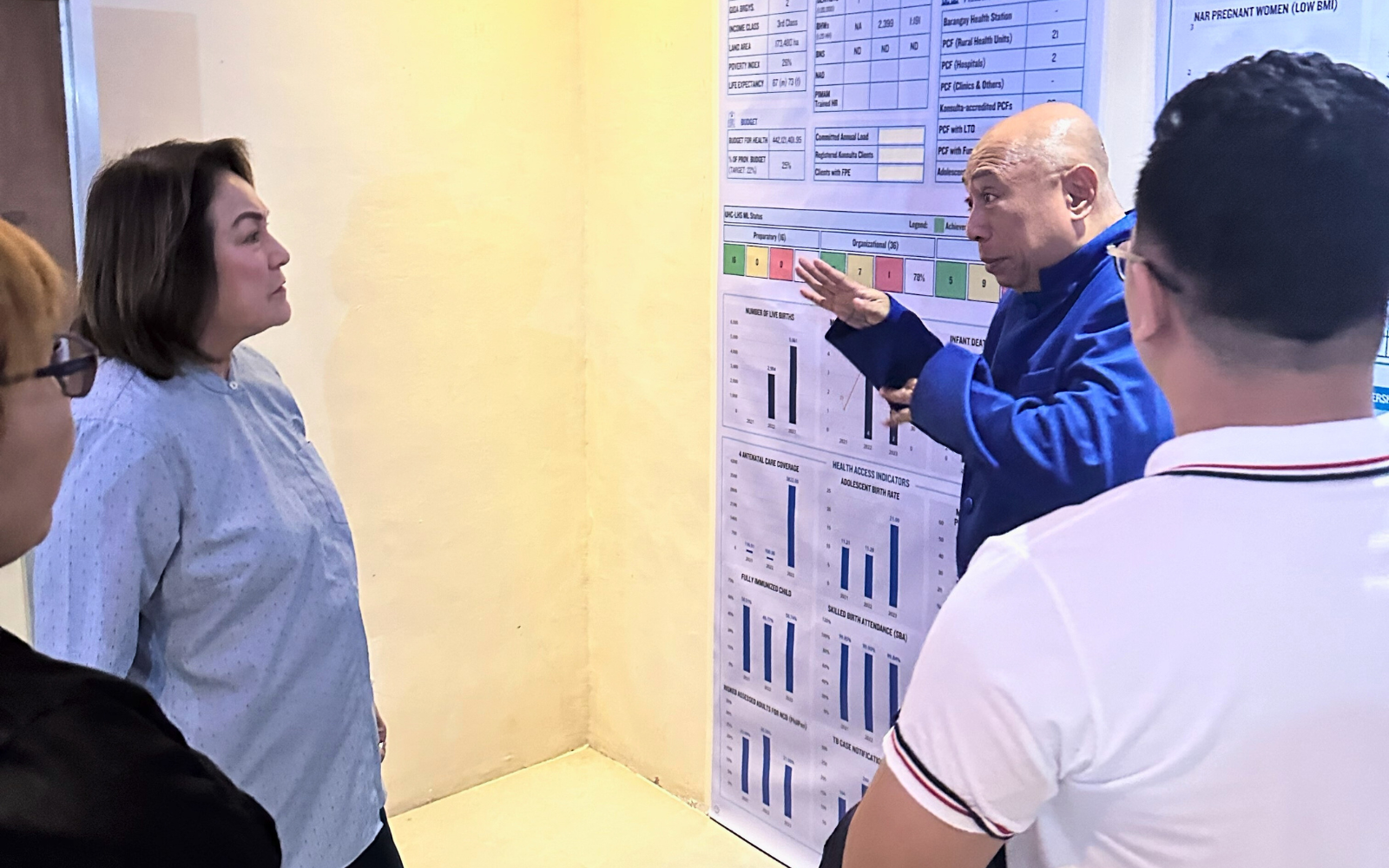Southern Leyte’s Commitment to Health Sector Transformation: A Step Towards Universal Healthcare
News | by Krizzia Esperanza

In the recent Zuellig Family Foundation (ZFF)’s Executive Session 2 for Governors (ESG 2) last March 15, 2024, Southern Leyte’s dedication to the health sector stood out as a motivating force amidst challenges. University of the Philippines Manila – School of Health Sciences facilitated this session for the Provincial Government of Southern Leyte, represented by Vice Governor Rosa Emilia Mercado.
Department of Health (DOH) Region 8 Director (RD) Exuperia Sabalberino observed how the province of Southern Leyte showcased remarkable resilience despite the hurdles of the COVID-19 pandemic and natural calamities such as typhoon Odette. Southern Leyte’s leaders and healthcare professionals remain steadfast in their pursuit of better health outcomes for their communities.
She called upon Vice Governor Mercado and others to strengthen partnerships, particularly in the full implementation of Universal Health Care (UHC). She said, “Dapat ang objective is for UHC na maramdaman ng bawat Pilipino, bawat komunidad, at bawat healthcare worker. Kahit nasa GIDA (Geographically Isolated and Disadvantaged Area) or far-flung barangay, there is access to quality health care and no one is left behind, communities are prepared and with systems in place to address health challenges.”
Dr. Feliciano John Matibag, Southern Leyte Provincial Health Officer (PHO), emphasized collaborative efforts with development partners to address pressing issues like teenage pregnancy. This challenge has been exacerbated by recent events but remains a top priority for the province. Strategies such as investment in supplemental feeding programs and ensuring access to quality healthcare services reflect Southern Leyte’s proactive approach to improving health outcomes.
Proactive measures, like the legislative initiatives by Provincial Health Board member Napoleon Regis, are crucial in addressing teenage pregnancy. Collaborations with the religious sector and advocacy for modern family planning methods are encouraged steps towards comprehensive solutions. Vice Governor Mercado sought the data on teenage pregnancies, highlighting the need for evidence-based decision-making.
RD Sabalberino also recognized the limitations faced in disseminating accurate information on Adolescent Sexual and Reproductive Health (ASRH) in schools, stating: “There is still a portion of teens who do not have access to the right information and services on ASRH. Unfortunately, nangyayari pa rin ang mga ito sa schools.” She stressed the importance of aggressive advocacy and strengthening local health systems to bridge gaps in education and services.
Looking ahead, Southern Leyte’s focus on education and awareness campaigns, leveraging youth organizations like the Sangguniang Kabataan (SK), is promising. Collaborations with the DOH’’s Health Promotion Unit underscore a unified effort towards realizing a transformed healthcare landscape in the province.
As they navigate challenges and seize opportunities, Southern Leyte sets an inspiring example for other regions striving towards UHC and sustainable health outcomes.
